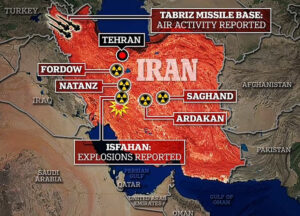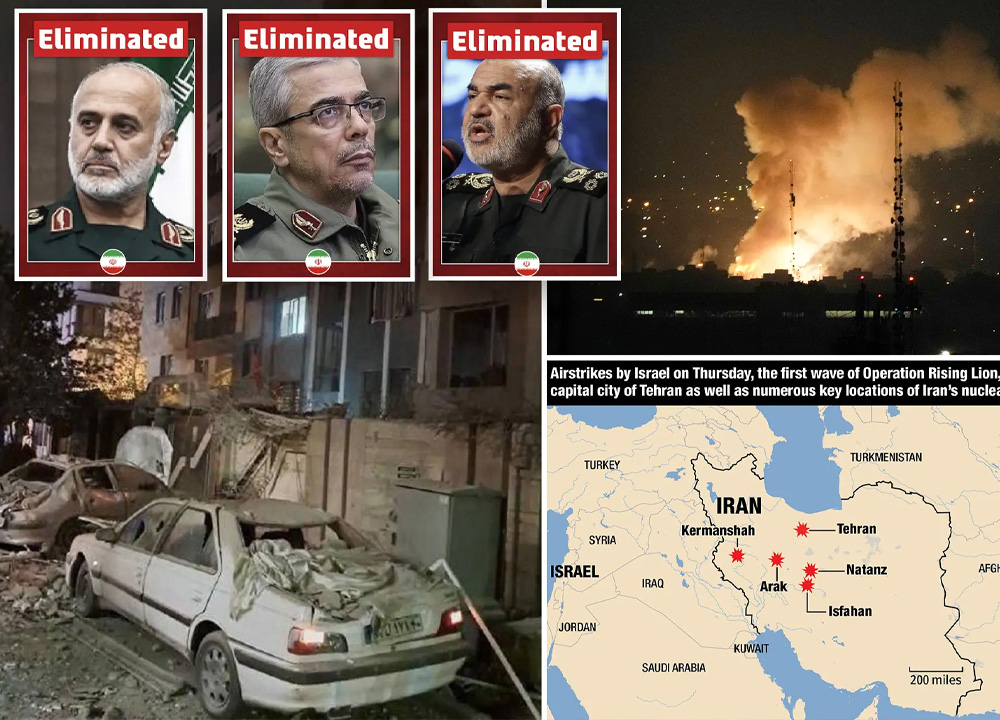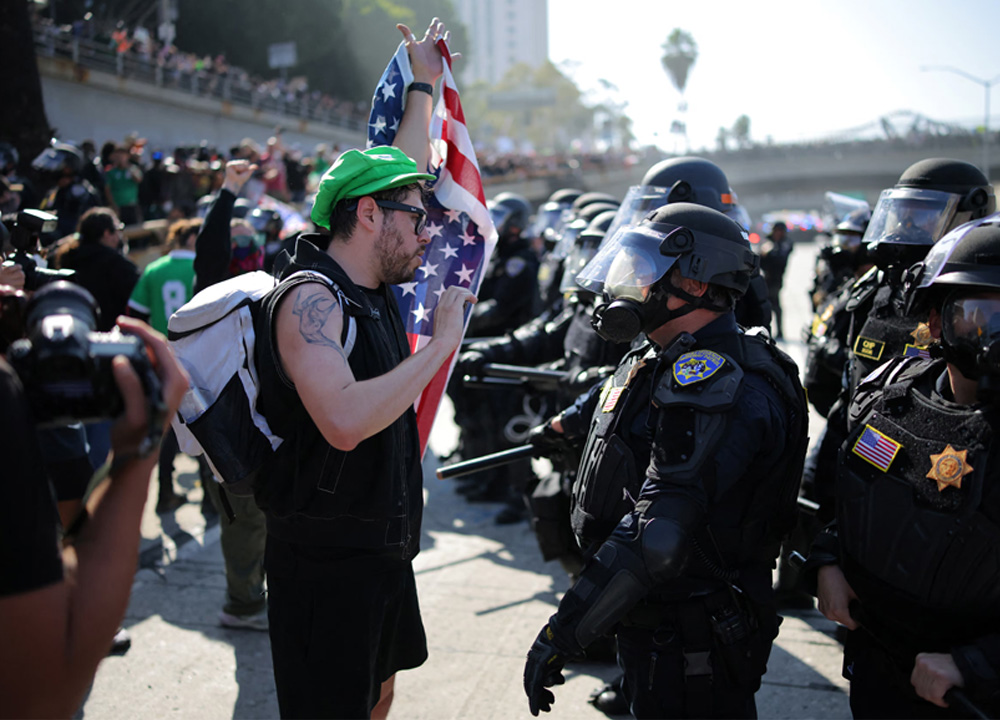⏰ The Strike Unfolds
-
Date: Early hours of June 13, 2025
-
Scope: Over 200 Israeli aircraft and Mossad units struck ~100 locations across Iran, deploying more than 330 munitions
-
Targets included:
-
Nuclear infrastructure (Natanz enrichment site, Tehran, Qom, Isfahan, Hamadan, Tabriz, Kermanshah, Markazi)
-
Iranian missile silos, radar arrays, air defense batteries (SA‑63, SA‑68, SA‑69, SA‑71)
-
Residences and command centers hosting senior military figures
-
🎯 Precision and Covert Strategy
-
Phase 1: Mossad operatives smuggled drones and precision weapons—establishing a covert drone base near Tehran to incapacitate air defense installations
-
Phase 2: Sabotage of Iranian radar and missile systems using planted explosives and NLOS (Non-Line-Of-Sight) guided strikes
-
Phase 3: With airspace cleared, IDF jets—F‑16Is, F‑35Is—conducted bomb runs on nuclear and military targets, supported by drone-detected telemetry

🧨 High-Profile Casualties
-
IRGC Commander-in-Chief Hossein Salami
-
Armed Forces Chief of Staff Maj‑Gen Mohammad Bagheri
-
IRGC Aerospace Commander Amir Ali Hajizadeh
-
Khatam-al Anbiya HQ Commander Gholam‑Ali Rashid
-
Nuclear scientists Fereydoon Abbasi(-Davani) and Mohammad Mehdi Tehranchi
🏛️ Official Justifications & Rhetoric
-
PM Netanyahu described the operation as essential to “roll back the Iranian threat to Israel’s very survival”, aligning with a biblical metaphor: “the people shall rise up as a lion…”
-
The IDF called this a “decapitation strike”, signaling intent to dismantle Iran’s nuclear and military leadership and capabilities
🌐 International and Regional Fallout
-
Iran’s label: “A declaration of war” — followed by a drone salvo (≈100 drones) launched at Israel; intercepted successfully with minimal damage
-
Airspace disruption: Iran, Iraq, Jordan, and Israel closed their skies. Airlines rerouted flights, citing safety, affecting global travel routes
-
Diplomatic firestorm: Emergency IAEA meeting called, U.N. Security Council convened. Western powers urged restraint even as the U.S. endorsed Israel’s right to act defensively .
📉 Strategic Impact
-
Israel’s strategy may delay Iran’s nuclear weaponization for years and constrain missile capacity.
-
The potential for further escalation remains high, with Iran’s leadership vowing retaliation—possibly through proxies or missile forces.
-
The operation might derail ongoing nuclear talks set for mid-June in Oman, prompting a broader regional crisis
🖼️ Visual Suggestions
Consider these assets for powerful visual storytelling:
-
Annotated strike map showing target locations across Iran (based on JINSA/Newsweek maps)
-
Drone/photos of Natanz site post-strike
-
Infographic timeline with phase breakdown and key events/services
-
Portraits of leaders killed, framed for gravity and impact








